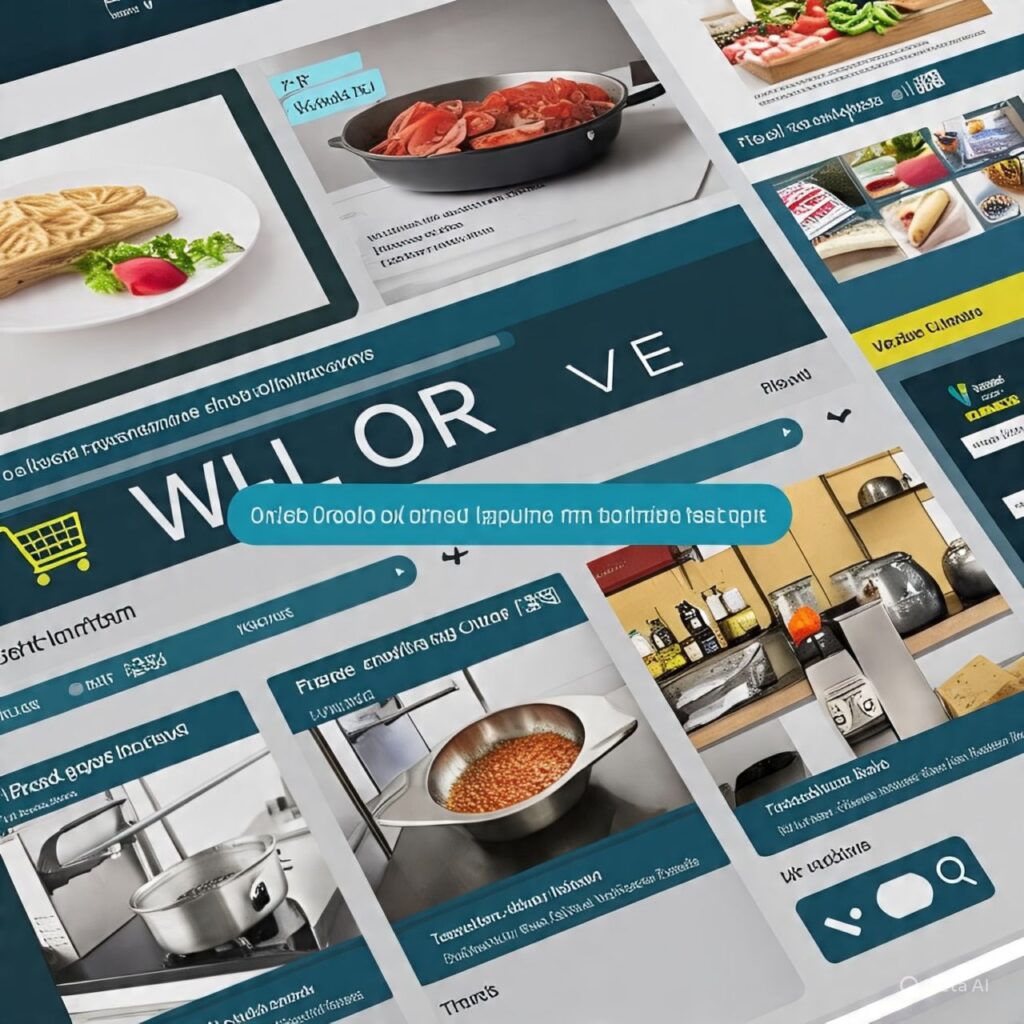In an era where mass-produced items dominate the shelves of online marketplaces and retail stores, a growing number of consumers are turning toward handmade and artisan goods for their uniqueness, authenticity, and craftsmanship. These goods—ranging from handwoven textiles and ceramics to bespoke jewelry and eco-friendly skincare—often reflect cultural traditions, personal stories, and sustainable practices. Whether you’re a passionate crafter, a small business owner, or a shopper seeking meaningful purchases, choosing the right online platform for buying or selling handmade products is essential.
In this comprehensive guide, we’ll explore the top shopping platforms for handmade and artisan goods in 2025. We’ll cover the features, benefits, pricing structures, and target audiences of each platform to help you make an informed decision, whether you’re looking to shop with intention or sell your creations globally.
1. Etsy
Overview:
Etsy is arguably the most popular online marketplace for handmade, vintage, and craft supplies. Since its launch in 2005, it has built a loyal base of creators and buyers who value originality, personalization, and craftsmanship.
Key Features:
-
Focused on handmade, vintage (20+ years old), and custom goods.
-
Offers seller dashboards, promotional tools, and customer insights.
-
Integrates with third-party apps for inventory and order management.
-
Offers global shipping and multilingual store options.
Fees:
-
Listing fee: $0.20 per item
-
Transaction fee: 6.5%
-
Payment processing fee: Varies by country
Ideal For:
Independent artisans, crafters, and small boutique sellers who want to tap into a global audience while maintaining brand individuality.
Pros:
-
Huge, engaged customer base
-
Extensive search filters and categories
-
Community support and Etsy Teams
Cons:
-
Increasing competition and platform fees
-
Limited brand customization
2. Amazon Handmade
Overview:
Amazon Handmade is a curated section of the global e-commerce giant, exclusively dedicated to handcrafted goods. Unlike the main Amazon marketplace, Amazon Handmade has stricter vetting processes for sellers to ensure authenticity.
Key Features:
-
Products must be entirely handmade, hand-altered, or hand-assembled.
-
No listing fees
-
Built-in Prime eligibility for faster shipping
-
Access to Amazon’s massive customer base
Fees:
-
Referral fee: 15% of the total sales price
Ideal For:
Artisans looking to scale their business with high-volume sales and are comfortable navigating a more structured marketplace.
Pros:
-
High visibility through Amazon’s search engine
-
Trust and credibility from Amazon shoppers
-
Fulfillment by Amazon (FBA) available
Cons:
-
Less control over branding and customer experience
-
Competitive pricing pressures
3. Shopify (with Handmade Store Setup)
Overview:
Shopify is a full-fledged e-commerce platform that allows sellers to create their own branded online stores. While it’s not a marketplace like Etsy or Amazon, it offers unparalleled flexibility and control, especially for artisan brands looking to establish a strong digital identity.
Key Features:
-
Fully customizable storefront
-
Extensive app ecosystem (marketing, analytics, logistics)
-
Integrated payment processing
-
Built-in SEO tools
Fees:
-
Monthly subscription: Starts at $39
-
Transaction fees: 2.9% + 30¢ per transaction (unless using Shopify Payments)
Ideal For:
Artisan brands ready to scale with a distinct online presence and direct-to-consumer (DTC) strategy.
Pros:
-
Complete brand ownership
-
Robust customer relationship tools
-
Multi-channel selling (Instagram, Facebook, Pinterest)
Cons:
-
Requires more setup and maintenance
-
Must drive your own traffic
4. Big Cartel
Overview:
Big Cartel is tailored specifically for independent makers, artists, and small brands who want a simple and affordable way to sell online. Its minimalist design and ease of use make it perfect for those just starting.
Key Features:
-
Easy store setup with artist-friendly themes
-
Free plan available for up to 5 products
-
Simple inventory and order management
Fees:
-
Free plan available
-
Paid plans: $9.99–$19.99/month
-
No listing fees, no transaction fees
Ideal For:
Hobbyists, local artisans, and creatives testing the waters of e-commerce.
Pros:
-
Budget-friendly
-
Easy-to-use interface
-
No hidden fees
Cons:
-
Limited features for scaling
-
Few integrations compared to Shopify
5. Folksy (UK-Based)
Overview:
Folksy is a UK-based marketplace dedicated exclusively to handmade crafts, art, and design from British makers. It functions similarly to Etsy but is geographically focused.
Key Features:
-
Handmade-only policy
-
Community-oriented platform
-
UK shipping focus
Fees:
-
Listing fee: £0.15
-
Commission: 6% + VAT
-
Plus account available for £5/month
Ideal For:
UK artisans wanting to connect with local buyers who prioritize supporting homegrown talent.
Pros:
-
Supportive artisan community
-
Made-in-Britain exclusivity
-
User-friendly interface
Cons:
-
Limited international exposure
-
Smaller audience than Etsy or Amazon
6. ArtFire
Overview:
ArtFire is a smaller online marketplace for handmade items, vintage goods, and craft supplies. It offers tools for managing inventory and customizing storefronts without overwhelming sellers with features.
Key Features:
-
Built-in blogging and SEO tools
-
Seller stats and traffic data
-
Supports digital downloads
Fees:
-
Standard plan: $4.95/month + listing fees
-
Pro plan: $20/month
-
Final value fee: 9-12%
Ideal For:
Crafters and handmade business owners looking for an alternative to Etsy.
Pros:
-
Flexible shop management tools
-
Less saturated than Etsy or Amazon
-
Customizable branding
Cons:
-
Smaller traffic and user base
-
May require more effort to drive sales
7. Zibbet
Overview:
Zibbet acts as a multichannel platform, allowing sellers to manage inventory across multiple marketplaces like Etsy, Facebook, and Instagram. It’s more of a backend dashboard for creators selling on various platforms.
Key Features:
-
Syncs inventory and orders across platforms
-
Supports handmade and craft supply sellers
-
No transaction fees (just monthly subscription)
Fees:
-
$5/month per sales channel
Ideal For:
Sellers juggling multiple online stores who want to streamline operations.
Pros:
-
Centralized management
-
Saves time on order processing
-
Flexible pricing
Cons:
-
Not a marketplace in itself
-
Requires existing stores or audiences
8. Handmade at Amazon vs. Etsy – Which Is Better?
This is a common question among artisans. Here’s a quick side-by-side:
| Feature | Etsy | Amazon Handmade |
|---|---|---|
| Seller Vetting | Open to all | Application and approval required |
| Brand Control | High | Limited |
| Customer Reach | Artisan-focused audience | Massive general audience |
| Fulfillment Options | Seller-fulfilled | FBA or seller-fulfilled |
| Listing Fees | $0.20 per item | None |
| Transaction Fees | 6.5% + payment processing | 15% referral fee |
Verdict: Etsy offers more control and a community-based shopping experience. Amazon Handmade provides massive reach but less flexibility. Choose based on your business goals.
Conclusion
The demand for handmade and artisan goods continues to grow as shoppers seek more meaningful, sustainable, and authentic experiences. Whether you’re a buyer looking to support small businesses or a maker ready to share your craft with the world, the right platform can make all the difference.
If you’re just starting, platforms like Etsy or Big Cartel offer low-risk entry. For those ready to build a brand, Shopify or WooCommerce provides unmatched customization. Meanwhile, Amazon Handmade offers global scale and logistics power—ideal for volume sellers. Ultimately, the best choice depends on your goals, skills, and vision for the future of your craft.




